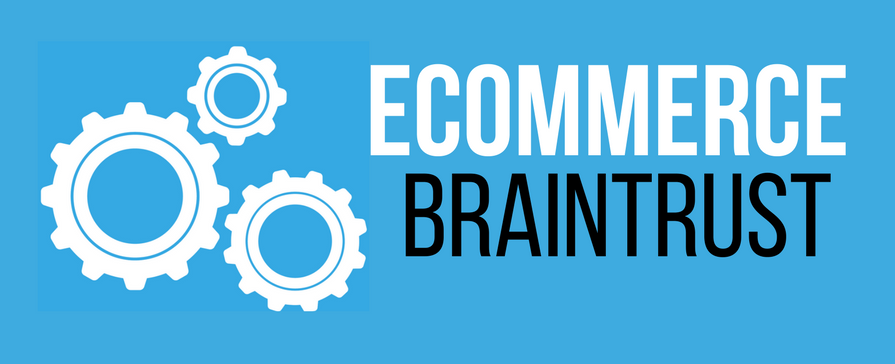Amazon FBA Aggregators: Should Retail Brands Be Concerned? - Episode 214
INTERVIEW WITH RUSS DIERINGER
DESCRIPTION
In today’s podcast, we talk with Russ Dieringer about Amazon FBA aggregators. We discuss their business model, hiring practices, as well as advantages and disadvantages compared to incumbent brands in the digital space as well as brick and mortar stores. We share our opinions about the future of aggregators and accelerators, as well as some predictions about their future.
Make sure you tune in to find out more!
Russ Dieringer is the founder of Stratably, a company dedicated to elevating the digital IQ of leading consumer brands. Each week, Russ creates impactful, practical, and easy to digest research that speaks to all layers of an organization, helping them see further around the corner of what’s coming in retail.
“While not every aggregator that has raised money is going to survive and thrive over the next year or couple of years, I think several will, and I think the dynamic around aggregators is here to stay.”
KEY TAKEAWAYS
FBA aggregators are at an intersection of ecommerce and capital markets. A lot of the aggregators had a really smart take on the market, and capital markets really validated how powerful a future Amazon and ecommerce more broadly have.
Aggregators are companies that acquire third-party marketplace sellers, refine their operations and integrate them into a bigger organization.
Accelerators are companies that buy the inventory off a seller and act as their authorized seller on Amazon and other marketplaces. Accelerators do not acquire a company, just the inventory.
This definition can be broadened to include the service providers and agencies that help companies with their Amazon and other digital businesses as well.
The aggregators vs. accelerators debate is misframed because they are not playing the same game.
Very often there is news about an aggregator reaching a major milestone in terms of capital events; every week there is a pitch by aggregators who are looking for a PR angle, or looking to buy brands; employees are getting pitched all the time to run off and join an aggregator, often with wild incentive proposals.
Some believe that investors are pumping too much money into the aggregators; that’s the initial reaction every time part of a new ecosystem forms, like the reaction to instant grocers.
Over $10BN debt and equity are raised among these aggregators - new capital continues to flow into this space
It has become much more competitive for the aggregators to find good sellers. For the aggregators, the value comes in bundling all these different sellers together, and the multiple for them is several times higher than the individual marketplace seller.
Until that multiple difference gets arbitraged away, we will continue seeing more capital come into the market
Some critics of aggregators make the case that several of these large aggregators are going to fail because their business model is not a secure one. The key arguments:
Aggregators are not immune to the same supply chain pressure as other retail companies and are likely feeling the pain.
The brands these aggregators are purchasing may be low-quality or at least undifferentiated. However, this may be a feature of the endeavor, since it is their sales that attract the aggregators and they are often cheaper to acquire that established brands.
Actually integrating these brands is more challenging than aggregators might understand, and this could be what separates the winners from losers in this space.
Major investors can’t afford for these companies to go under so are essentially propping them up with a capital gravy train. However, new companies and big investment firms are coming in and investing for the first time into this space.
Information from the report:
Aggregators have 3 to 4 times more people than incumbent brands.
Aggregators don’t have any of the alternative channels (B&M, etc.) that cost time and overhead to manage; they have a singular focus.
Aggregators hire rapidly and are ahead of the curve in terms of the amount of resources they’re dedicating per dollar.
The key challenges to incumbent brands that Aggregators pose are:
If competition is coming into your category, advertising will get more expensive and you will deal with more well-funded competition
Aggregators have a compelling value proposition as an employer in search of talent.
Incumbent brands owning manufacturing or having exclusive contracts is an advantage; and aggregators will probably be looking into owning parts of the supply chain, which is something the individual sellers might not be able to.
COVID has attracted a lot of capital into the digital space, digital retail and DTC that it really is a major opportunity for senior leadership teams at established consumer brands to drive firm value.
Stratably is all about providing research and insights to help VPs of ecommerce educate their org on these topics. The key to educating organizations is really consistent education, daily or weekly.
MENTIONED IN THIS EPISODE
Connect with Kiri Masters
Learn more about Bobsled Marketing
Connect with Russ Dieringer
Learn more about Stratably
Check out the video Amazon Aggregators with Stratably

